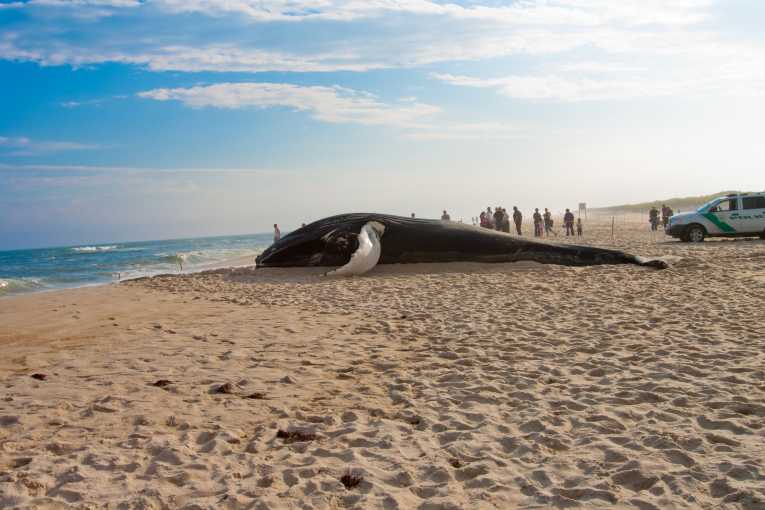The environmental toll of the Deepwater Horizon oil spill in the Gulf of Mexico could be higher than current estimates says a new study that says as many as 50 times more whales and dolphins were killed than carcasses were recovered after the 2010 disaster.
A team from the University of British Columbia publish their survey in the latest edition of Conservation letters and argue that the number of carcasses found is not an accurate measure of the effect on wildlife.
The team looked at 14 species of cetacean, the order of mammals which includes whales and dolphins in their research.
''The Deepwater oil spill was the largest in US history, however, the recorded impact on wildlife was relatively low, leading to suggestions that the environmental damage of the disaster was actually modest,'' said lead author Dr Rob Williams. ''This is because reports have implied that the number of carcasses recovered, 101, equals the number of animals killed by the spill.''
However, the team argue that many creatures will have died of the effects of the disaster far from the disaster scene and will not be accounted for in a simple body count. To try to find a better count the team multiplied recent species abundance estimates by the species mortality rate. By dividing the average number of annual strandings by the estimate of annual deaths they came to the conclusion that only 2% of the cetaceans which died were usually recovered as carcasses.
''This figure illustrates that carcass counts are hugely misleading, if used to measure the disaster's death toll,'' said co-author Scott Kraus of the New England Aquarium ''No study on carcass recovery from strandings has ever recovered anything close to 100% of the deaths occurring in any cetacean population. The highest rate we found was only 6.2%, which implied 16 deaths for every carcass recovered.''
Because the aptly named Deepwater was so far out to sea at 40 miles offshore and in water that is 1,500m deep all responses to the disaster had to deal with incredible technical challenges and the same is true for estimating the damage the researchers say.
''The same factors that made it difficult to work on the spill also confound attempts to evaluate environmental damages caused by the spill,'' said Williams. ''Consequently, we need to embrace a similar level of humility when quantifying the death tolls.''
The team also believes that similar underestimates are being made of marine deaths caused by other human activities, such as whales killed by fishing gear.
''While we did not conduct a study to estimate the actual number of deaths from the oil spill, our research reveals that the accepted figures are a grave underestimation,'' concluded Dr. Williams. ''We now urge methodological development to develop appropriate multipliers so that we discover the true cost of this tragedy.''










